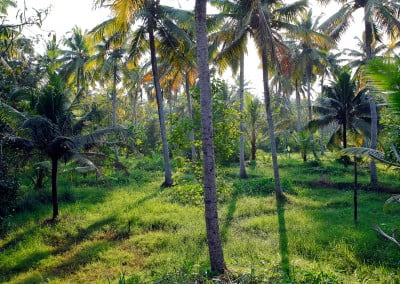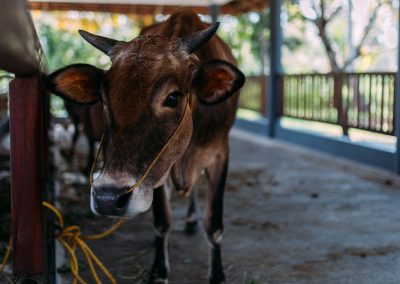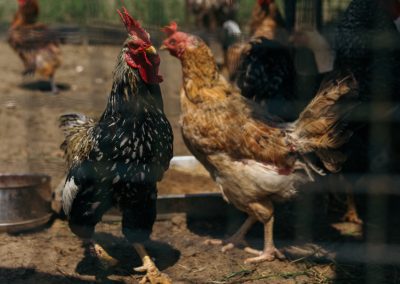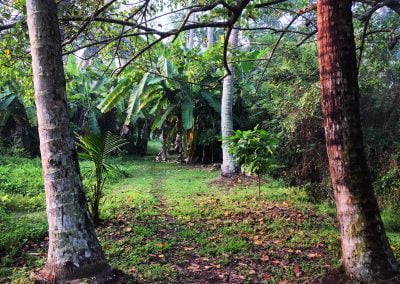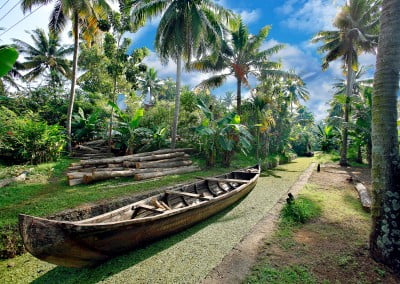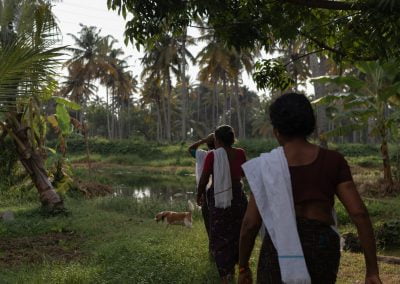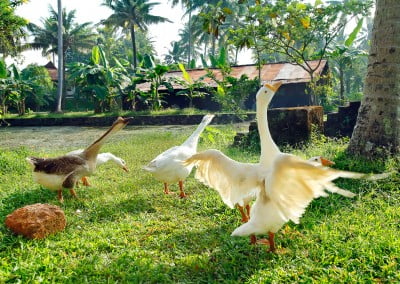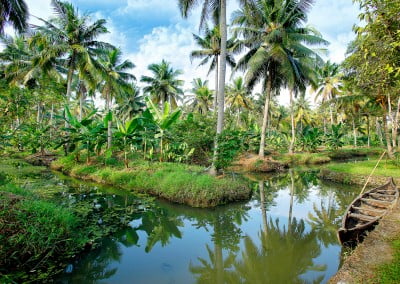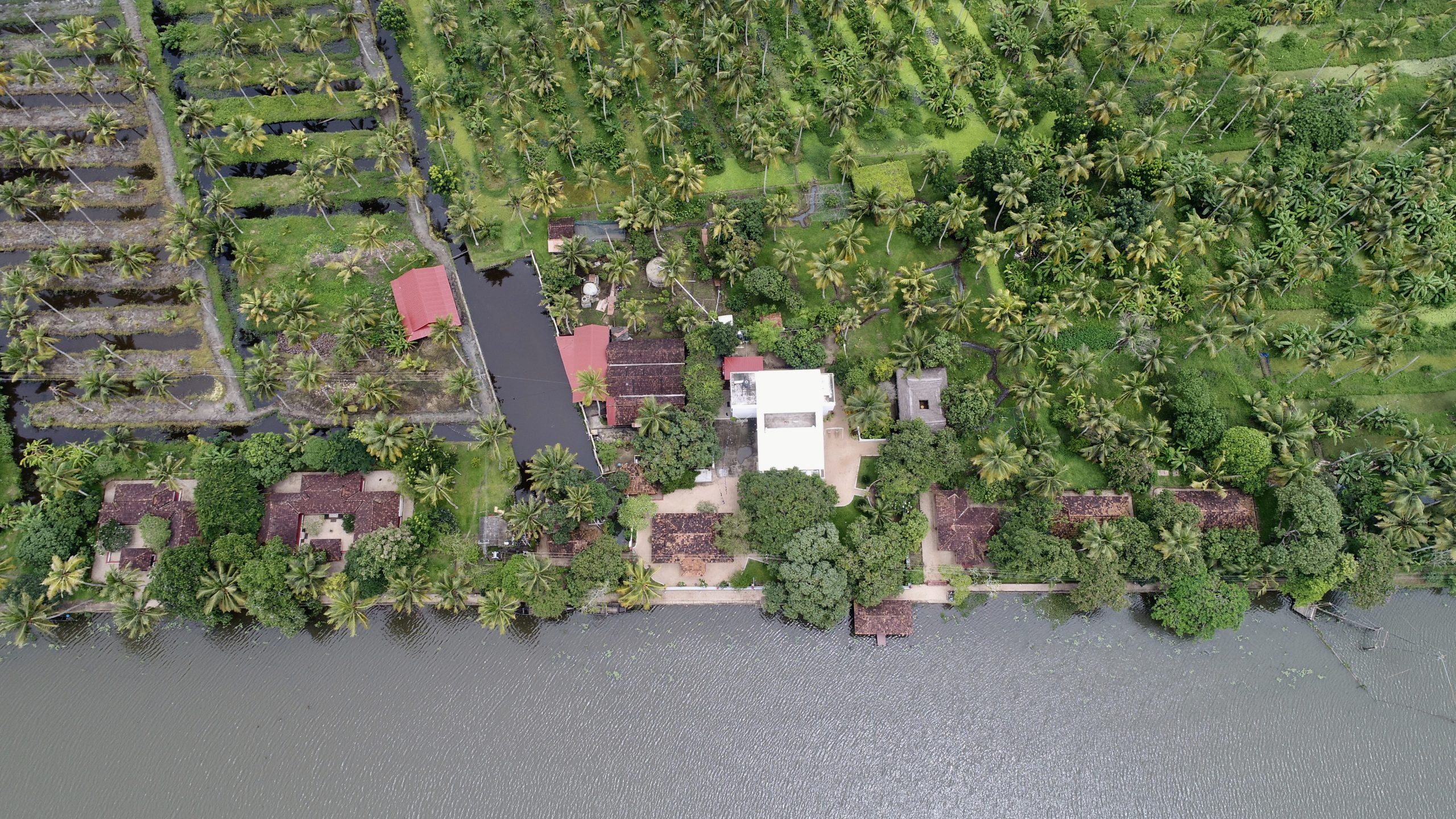
The Farm
The farm is located on a small island (approximately 750 acres) in the backwaters by Vembanad Lake near Kumarakom within the Vechoor village limits. The farm is about 35 acres and is the largest farm on the island. The island is a reclaimed property which was built in the early 1950’s by my husband’s grandfather. It was my father-in-law, the late Philipkutty, who undertook further development on the farm by bringing in a system of inter-crop farming. The island is called Puthankayal (‘Puthan’ means new) as it was the last island to have been reclaimed in the backwater region for agriculture.
Being a reclaimed property typical of the Kuttanad or backwater region, the farm is approx 2 metres below the lake level. The retaining dyke around the perimeter of the island keeps the lake water from entering the farm. Being below the lake level, all the rain water is pumped out especially during the monsoon season by using an electric motor and pump. This is critical to the existence of the farm.
The farm is made up of ridges and canals, with all the planting done on the ridges. The major crops on the farm were coconut, toddy tapping, nutmeg, cocoa, banana, pepper and many other fruits, vegetables and spices. The farm also has a few cows, geese, ducks and hens. We are members of the Vechoor Cow Trust and are doing our small part in the conservation of Vechoor cows by having three on the farm. The reclaimed island has also helped Vechoor Village to develop. It has given land to the people, plenty of employment, free grass for cows and free fuel, which were also important aspects of our initial vision and objectives.
The farm was a ‘modern’ farm when it started, but in the last 10 years we have been systematically cutting down on chemicals and relying more on organic and natural farming methods. Today we have successfully cut down by 75 to 80% all chemical inputs. At present the farm employs sustainable and organic methods of farming and we believe that in the coming years we will be a 100% organic farm.
Sadly, in 2013, we suffered a devastating flood, which killed or damaged many of our trees and crops. We are determined to overcome this, and are already beginning the necessary replanting of a wide variety of saplings, concentrating for now on coconut trees. It will, however, take us some years to recover fully from this catastrophe, which fortunately has not impacted on our guests in any way at all, and resume our usual farming practice. At present, we are still producing coconut, banana and a variety of spices, fruits and vegetables for home consumption.
